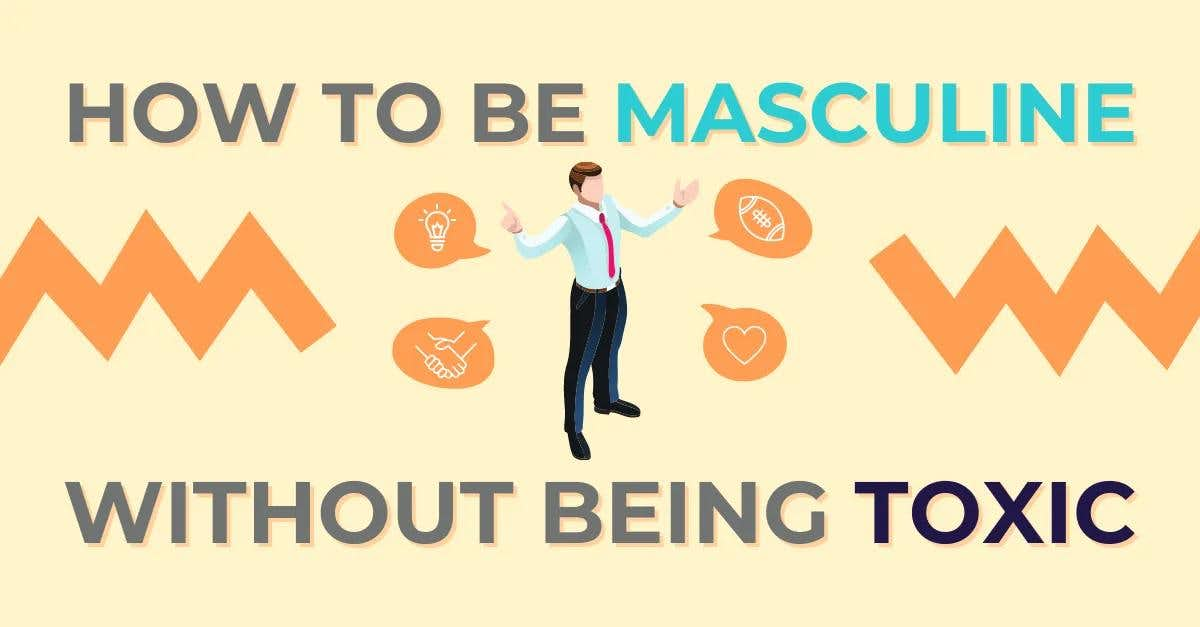October 27th, 2021

Before defining toxic masculinity, it is essential to note that being masculine or a man is not inherently bad or harmful. They only become toxic when the notions cultivate rigid thinking, a disconnection from the authentic self, feelings, or core values. Toxicity seeps in when identifying as "a man's man" perpetuates patterns of unhealthy thoughts and behaviors. This negatively impacts not only yourself but those around anyone suffering through the abstract construct of toxic masculinity.
Toxic masculinity is expressed by exaggerated, archaic ideas of being a man and masculinity. It is complex, deep-rooted, and difficult to define succinctly. I'll attempt to define it by; suppressing, masking, not feeling, or understanding emotions.
At the same time, emotional expression is limited to anger and irritability or more destructive emotions such as rage and aggression. Furthermore, consistent attempts to maintain an image of being hard, tough, or overly self-sufficient.

According to Medical News Today, symptoms of toxic masculinity might show up as some of the following:
More recognizable toxic masculinity examples you may have unfortunately heard:

We all can play a part in reducing toxic masculinity. Television, radio, and movies have traditionally played an enormous role in influencing behavior and ideas. Ultimately it comes down to the individual building more awareness, making intentional choices, and being patient with change being a process. Here are some ways we can collectively help diminish this destructive aspect of our society and how men can individually challenge their own beliefs and behaviors.
Collectively:
For Men:
Redefine for self what it is to be a man or masculine. Challenging archaic ideas that likely have been defining it for you in examples such as;
Recognizing:
Come from a place of genuine curiosity and compassion. Whether reflecting on behaviors and thoughts, you’re engaging in yourself or when challenging those of another. Genuine curiosity lessens defensiveness and allows space for constructive dialogue, reflection, insight, and change. We all could use a little more compassion. Whether we are passing it on to others or being gracious and giving it to ourselves.
If the confrontation becomes too aggressive or judgmental and lacks compassion, the infamous ego will step in. The ego has a knack and quick trigger for fiercely defending deep-rooted behaviors and thinking. The defensiveness can lead to increased rigidity, shame, reluctance to share, and inaction toward healthy adaptive changes.
In my personal and professional experience, the defining traits of toxic masculinity often go against the person's core values engaging in those maladaptive behaviors or thoughts. When confronting the behaviors, it is subconscious or something they absorbed or bought into at a young age and never challenged.
In a non-judgmental approach, whether internally reflecting or being externally confronted, the person can develop insight and make a conscious choice in the here and now. They can then identify if their behaviors align with their values and work to become more aligned and balanced if not.
The attitudes and behaviors tied to toxic masculinity are just that – toxic. They lead to harmful consequences not only in relationships but mentally and thus physically for the individual. Tragically, reducing lifespans and overall quality of life as illustrated in alarming stats around suicide rates, alcohol and drug use, and heart disease in men.
It is up to you to define what masculinity means to you, your values, and what is necessary for you. If you identify as masculine, how do you embody it in a way that aligns with your values? Leave the stuff you’ve been conditioned to behind and hold on to what serves you best.

Working with a trained professional can help you identify your values, explore subconscious and conscious influences, recognize your internal dialogue/self-talk, examine interpersonal relationships, and set realistic, attainable goals. Laying a path to work toward positive change through reframing/changing maladaptive thoughts and behaviors, thus expecting a healthier expression of emotions to accompany you. Resulting in a significantly longer lifespan, improved mental health, and overall improved quality of life.
A documentary completed in 2015 by the Representation Project, The Mask You Live In, expands on the ideas in this blog and gives actual voices to these concepts, illustrating the impact on an individual level.
Written By: Kevin Vail, LPC, NCC
At Clarity Clinic, we have highly trained staff who specialize in therapy and psychiatry services. To learn more about how we can support your mental health, call Clarity Clinic on (312) 815-9660 or schedule an appointment today.
Our Services
Virtual/Online CarePHP and IOPAdult PsychiatryChild & Adolescent PsychiatryAdult TherapyChild & Adolescent TherapyCouples CounselingFamily TherapyGroup TherapyPsychological TestingTranscranial Magnetic Stimulation (TMS)